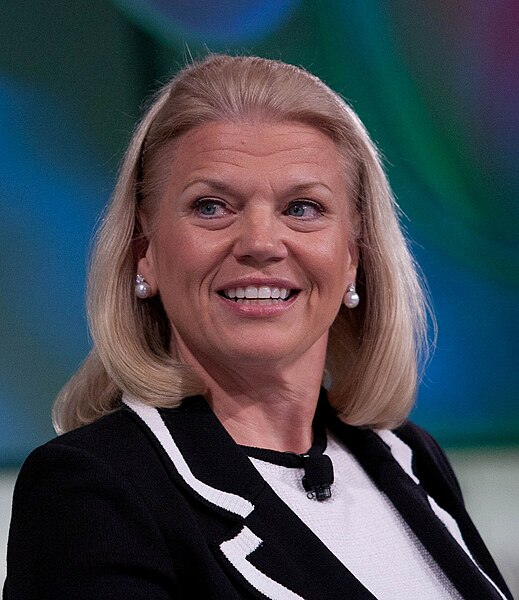Leading with Conviction: Lessons from Angela Merkel’s Legacy

Exploring Angela Merkel’s Leadership Lessons and Stories
Angela Merkel is a name that is synonymous with leadership. As the Chancellor of Germany for sixteen years, she has played a significant role in shaping not only the country but also the world at large. Merkel’s leadership style has been characterized by a unique blend of conviction, pragmatism, and composure, which has helped her navigate through some of the most challenging times in recent history. Her leadership lessons and stories have the potential to inspire and guide future leaders in their journeys.
Merkel’s legacy is not only limited to Germany but has had a significant impact on the European Union and the world. She has been a strong advocate for the European project, advocating for deeper integration and cooperation among EU member states. Merkel has also been instrumental in shaping the response to critical issues such as the refugee crisis, the eurozone crisis, and the COVID-19 pandemic.
As we reflect on Angela Merkel’s leadership journey, we can draw valuable lessons and insights into what it takes to be an effective leader in today’s world. This article aims to explore Merkel’s leadership style, lessons, and stories that have shaped her legacy and future impact. We will also reflect on the lessons that future leaders can learn from Merkel’s example and emulate her leadership style to lead with conviction, composure, and pragmatism.
Angela Merkel’s Background and Rise to Power
Angela Merkel was born in Hamburg, West Germany, on July 17, 1954. She grew up in East Germany and earned a Ph.D. in physics from the University of Leipzig in 1978. Merkel entered politics in 1990, just after the fall of the Berlin Wall. She joined the Christian Democratic Union (CDU) and quickly rose through the ranks.
In 2005, Merkel was elected Chancellor of Germany, becoming the first woman to hold the position. Merkel’s rise to power was a testament to her political acumen and leadership skills. She was known for her ability to build consensus, her keen sense of diplomacy, and her pragmatic approach to governance.
Merkel’s leadership style has been defined by her willingness to put the country’s interests first. She has been unafraid to make tough decisions and to take on difficult challenges. Merkel has always been a leader who is willing to listen to others and to work collaboratively to find solutions. This approach has allowed her to build strong relationships and alliances both domestically and internationally.
Merkel’s rise to power was not without challenges. She faced significant opposition from within her own party, with some questioning her leadership style and approach. However, Merkel’s ability to stay focused on the task at hand and to maintain her composure in the face of criticism helped her weather these challenges.
As Chancellor, Merkel has been known for her effective communication skills. She has the ability to distill complex issues and explain them in a way that is accessible to the public. This approach has helped her build a strong base of support and has made her a trusted leader in times of crisis.
Merkel’s rise to power and her leadership style have made her a role model for many young women around the world. Her example shows that with hard work, determination, and a commitment to serving others, anything is possible.
Angela Merkel’s background and rise to power provide valuable insights into what it takes to be an effective leader. Her ability to build consensus, her pragmatic approach to governance, and her effective communication skills have helped her navigate through some of the most challenging times in recent history. Merkel’s leadership journey serves as an inspiration for aspiring leaders around the world.
Leadership Lessons from Angela Merkel
Angela Merkel’s leadership style has been shaped by her experiences and values. Her approach to leadership can be distilled into several key lessons that have guided her throughout her tenure as Chancellor.
Putting the Country’s Interests First
Merkel has always been known for her willingness to put the interests of the country ahead of political expediency. This has meant making tough decisions that may not always be popular but are necessary for the greater good. Her focus on the country’s interests has earned her respect both domestically and internationally.
Leading with Conviction and Courage
Merkel has been unafraid to take bold action when necessary. Her decision to allow over one million refugees into Germany during the height of the refugee crisis was a testament to her conviction and courage. This decision was not without challenges, but Merkel’s willingness to take a stand has earned her a place in history as a leader who is unafraid to tackle difficult challenges.
Being an Effective Communicator
Merkel’s ability to communicate effectively has been one of her most valuable assets as a leader. She has the ability to distill complex issues and explain them in a way that is accessible to the public. Her communication skills have helped her build trust and credibility with the German people and the international community.
Building Strong Relationships and Alliances
Merkel has been successful in building strong relationships and alliances both domestically and internationally. Her approach to diplomacy has been characterized by a willingness to listen to others and work collaboratively to find solutions. This approach has helped her build trust and respect with other leaders and has been instrumental in shaping Germany’s foreign policy.
Managing Crises with Calm and Composure
Merkel’s ability to stay calm and composed in the face of crisis has been one of her most impressive qualities as a leader. Her response to the COVID-19 pandemic was a testament to her composure under pressure. Merkel’s leadership during the pandemic has been characterized by a willingness to listen to experts, communicate effectively with the public, and take decisive action when necessary.
Angela Merkel’s leadership lessons provide valuable insights into what it takes to be an effective leader. Her focus on the country’s interests, her conviction and courage, her effective communication skills, her ability to build strong relationships and alliances, and her composure under pressure have all contributed to her success as a leader. Aspiring leaders can learn from Merkel’s example and emulate her leadership style to lead with conviction, composure, and pragmatism.
Stories and Examples of Merkel’s Leadership
Angela Merkel’s leadership style and lessons have been put to the test time and time again throughout her tenure as Chancellor. The following stories and examples provide insight into how Merkel has navigated through some of the most challenging times in recent history.
The Refugee Crisis and Merkel’s Response
In 2015, Germany faced an unprecedented influx of refugees, with over one million refugees seeking asylum in the country. Merkel’s decision to allow the refugees into Germany was met with both praise and criticism. Merkel’s response to the crisis was guided by her conviction that Germany had a moral obligation to help those in need. She faced significant opposition from within her own party, but her willingness to take a stand and do what was right earned her respect both domestically and internationally.
The Eurozone Crisis and Merkel’s Role
The Eurozone crisis was one of the most significant challenges that Merkel faced during her tenure as Chancellor. Germany, as the largest economy in the Eurozone, played a significant role in shaping the response to the crisis. Merkel’s approach was characterized by a pragmatic focus on finding a solution that would be in the best interests of all parties involved. Her leadership during the crisis helped stabilize the Eurozone and prevented a larger economic downturn.
Merkel’s Relationship with Former US President Donald Trump
Merkel’s relationship with former US President Donald Trump was a contentious one. Merkel was critical of Trump’s approach to foreign policy, particularly his stance on NATO and his decision to withdraw from the Paris climate agreement. Despite the challenges, Merkel maintained a constructive relationship with Trump, working to find common ground where possible.
Merkel’s Handling of the COVID-19 Pandemic
Merkel’s handling of the COVID-19 pandemic has been characterized by a focus on science and evidence-based decision making. She has been willing to take decisive action to protect the health and safety of the German people, including implementing lockdown measures and promoting vaccination efforts. Merkel’s leadership during the pandemic has been praised both domestically and internationally for its effectiveness and pragmatism.
These stories and examples illustrate how Merkel’s leadership style and lessons have been put to the test throughout her tenure as Chancellor. Her willingness to take a stand and do what is right, her pragmatic approach to finding solutions, her constructive relationships with other leaders, and her focus on science and evidence-based decision making have all been key to her success as a leader.
Reflections on Merkel’s Legacy and Future Impact
As Angela Merkel’s time as Chancellor comes to an end, it is essential to reflect on her legacy and the impact she has had on Germany, Europe, and the world.
Merkel’s impact on Germany has been significant. She has been instrumental in shaping the country’s response to critical issues such as the refugee crisis, the eurozone crisis, and the COVID-19 pandemic. Under her leadership, Germany has become a leader in renewable energy and climate action, and the country has experienced sustained economic growth.
Merkel’s impact on Europe has also been significant. She has been a strong advocate for the European project, promoting deeper integration and cooperation among EU member states. Her leadership during the eurozone crisis helped stabilize the European economy and prevented a larger economic downturn. Merkel’s role in negotiating the Brexit agreement demonstrated her commitment to finding pragmatic solutions that would benefit all parties involved.
Merkel’s impact on the world at large cannot be overstated. Her leadership on issues such as climate action, migration, and international security has earned her respect and admiration from leaders around the world. Merkel’s approach to diplomacy, characterized by a willingness to listen to others and work collaboratively to find solutions, has made her a trusted leader in times of crisis.
Looking to the future, Merkel’s legacy and leadership lessons will continue to have an impact on the world. Her commitment to science and evidence-based decision making is particularly relevant in the context of the ongoing COVID-19 pandemic. Merkel’s leadership on climate action will continue to inspire and guide efforts to address the climate crisis. Her focus on the importance of building strong relationships and alliances will continue to be a valuable lesson for leaders seeking to navigate complex global challenges.
Angela Merkel’s legacy as Chancellor of Germany is one of pragmatism, conviction, and composure. Her leadership lessons and stories have the potential to inspire and guide future leaders in their journeys. Merkel’s impact on Germany, Europe, and the world has been significant, and her legacy will continue to shape the global political landscape for years to come.
Emulating Merkel’s Leadership: Guiding Future Leaders to Success
Angela Merkel’s leadership journey has been one of the most remarkable in recent history. Her rise to power and her approach to leadership have provided valuable lessons and insights into what it takes to be an effective leader. Her focus on the country’s interests, her conviction and courage, her effective communication skills, her ability to build strong relationships and alliances, and her composure under pressure have all contributed to her success as a leader.
Aspiring leaders can learn from Merkel’s example and emulate her leadership style to lead with conviction, composure, and pragmatism. Merkel’s legacy and leadership lessons will continue to have an impact on the world, inspiring and guiding future leaders in their journeys.
Merkel’s legacy as Chancellor of Germany will be remembered for her contributions to a more united Europe, her advocacy for science and evidence-based decision making, and her commitment to protecting the environment. She has been a leader who has consistently put the interests of her country and the world ahead of political expediency, earning her respect and admiration from leaders around the world.
As we look to the future, Merkel’s legacy and leadership lessons will continue to be relevant and influential. Her example demonstrates that effective leadership requires a combination of conviction, pragmatism, and composure. It is essential to focus on the interests of the country and to build strong relationships and alliances both domestically and internationally.
In conclusion, Angela Merkel’s leadership journey serves as an inspiration for aspiring leaders around the world. Her legacy will continue to shape the global political landscape for years to come, and her leadership lessons will continue to guide future leaders in their journeys to make a positive impact on the world.






